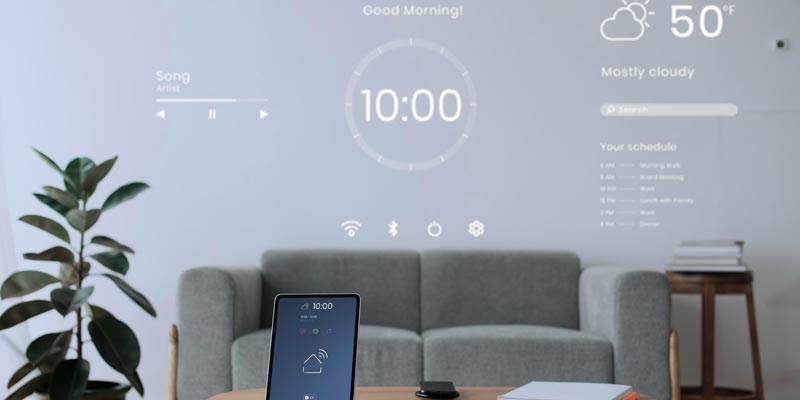The real estate business has always followed the trend of technology and economics, but consumer behavior in real estate 2025 are changing rapidly due to digital innovation, generational change, and evolving lifestyle preferences. Both developers and agents need to adapt while the market adjusts or else they will fall behind.
Here’s what to anticipate from shifting consumer attitudes in the real estate market of 2025, and how to remain ahead.
The Rise of the Hyper-Informed Buyer
Buyers used to mostly depend on real estate agents for listings, pricing information, and trends in the past. But this year is seeing a new type of buyer and consumer behavior in real estate 2025 hyper-informed and tech-savvy.
Through sites such as Zillow, Redfin, and apps based on artificial intelligence, consumers are entering showings already armed with comparative market analyses, neighborhood information, and mortgage calculators. They’re not merely window shopping–they’re dissecting price per square foot, school districts, commute times, and past property values.

What this means:
Real estate agents must move away from acting as gatekeepers of information and become strategic advisors. consumer behavior in real estate 2025 want insight, not information. The agents who are able to decipher the onslaught of information and provide context and strategy will gain trust and business.
Virtual is No Longer Optional
Virtual tours, 3D walkthroughs, and AR overlays used to be premium upgrades. Today they’re minimum requirements. Particularly among Millennials and Gen Z, home buying online first is no longer a convenience, it’s an imperative.
Consumer behavior in real estate 2025 wants to see a house before they set foot in it. Virtual staging, interactive floor plans, and drone footage make them envision the room, its capabilities, and its possibilities. Even some are buying houses sight unseen, using only digital resources.
What this means:
Sellers and agencies have to invest in great-quality digital content. Bad images and no immersive media may render a listing unseen by today’s buyers. Furthermore, sites that facilitate real-time video tours or live Q&A will become even more popular.
Sustainability as a Deciding Factor
Environmental consciousness is actually determining the way shoppers make decisions nowadays, and the real estate industry is certainly not immune. Increasingly, consumers are making purchases based on a house’s carbon footprint, energy efficiency, and green certifications when deciding what to buy.
Attributes such as solar panels, intelligent thermostats, energy-efficient windows, and green materials have transitioned from being merely fashionable choices to default expectations. As governments continue to pressure for stricter environmental policies, sustainability living is transforming from a nice added value to a necessary requirement.

What this means:
Homebuilders and sellers really need to showcase their green features more effectively. Agents ought to be prepared to discuss the long-term savings and advantages that come with energy-efficient properties. As consumer behavior in real estate 2025 increasingly seeks transparency, we can expect to see sustainability metrics popping up on more listings.
Demand for Flexibility and Multi-Use Spaces
The shift to remote work that the pandemic brought about has fundamentally changed how we think about our homes. Consumer behavior in real estate 2025 is all about flexibility. They’re on the lookout for home offices, versatile rooms, and designs that support a hybrid way of living.
Additionally, co-living spaces and multi-generational homes are making a comeback, fueled by economic needs and evolving family structures. Buyers are seeking homes that can adjust not only to their present requirements but also to what they might need in the future.
What this means:
When it comes to listings, those that highlight flexible designs, bonus rooms, or renovation potential tend to attract more interest. Sellers might want to think about making some small staging adjustments to show how a space can serve multiple functions, like transforming into a home gym or an office.
Personalization Through Technology
Thanks to advancements in AI and machine learning, Consumer behavior in real estate 2025 is looking for a truly personalized experience right from their very first click.
Real estate platforms are tapping into browsing history, individual preferences, and behavioral patterns to provide tailored listings, mortgage options, and neighborhood suggestions. Instead of sifting through countless irrelevant listings, buyers are craving smart matchmaking. They want platforms and agents to understand their preferences even better than they do themselves.

What this means:
Brokerages really need to embrace technology that allows for personalized experiences on a larger scale. Tools like chatbots, CRM automation, and AI-driven insights are set to become key players in how they engage with consumers. Plus, it’s essential for agents to get comfortable with data so they can better understand and anticipate what their clients truly need.
Generational Shifts Are Driving New Priorities
As Gen Z makes their way into the housing market, they’re bringing a fresh perspective that’s changing what people want. This younger crowd is all about valuing experiences over just having more space, connecting with their community instead of feeling isolated, and opting for smart technology rather than sticking with traditional finishes.
On the flip side, Millennials, who still make up the largest group of home buyers are now settling into midlife. Consumer behavior in real estate 2025 is in a lookout for family-friendly neighborhoods, great schools, and solid long-term investments. Meanwhile, Baby Boomers are either downsizing or considering options that allow them to age in place comfortably.
What this means:
It’s apparent that a one-size-fits-all solution simply doesn’t work anymore. For marketing messaging and property attributes, they simply have to connect with the values of various generations.
Consider, for example, a modern, techy condo in the city center, it’s bound to grab the attention of Gen Z. However, a welcoming suburban house close to highly rated schools is likely to attract Millennials. Real estate agents who know how to adapt their approach to appeal to different age groups are the ones who will be successful.
Financial Transparency is Crucial
Today, consumers are being more cautious and keeping close tabs on their expenses. With inflation, high interest rates, and rising home costs, affordability is the greatest concern. They are seeking openness in finances, including the costs in detail, estimates of maintenance, and the long-term monetary implications.
The mortgage process is shifting as well. Individuals are now shopping around online for rates, obtaining pre-approval on fintech platforms, and exploring new financing alternatives such as rent-to-own and fractional ownership.
What this means:
Consumers actually desire transparent and upfront disclosure regarding all the expenses, not merely the sticker price. Agents and sellers should initiate addressing any questions regarding affordability and offer information regarding available financing options. By including mortgage utilities and cost calculators in listings, they can generate trust and confidence on the part of prospective consumers.
The Power of Online Reputation
Referrals have gone digital nowadays. Gone are the days of mere word-of-mouth alone. Consumers are now going online to read reviews, browsing social media, and viewing testimonial videos before choosing an agent or brokerage. They yearn for authenticity over a glitzy facade.
Your online presence will be more important than ever in 2025. One bad review or poor online reputation can be the deciding factor that makes or loses a sale.

What this means:
Real estate agents need to keep an eye on their online reputation. Ask satisfied customers to leave reviews, post useful content, and project a professional yet friendly attitude on platforms like Instagram, LinkedIn, and YouTube.
Final Thoughts: Embracing the Shift
Consumer behavior in residential real estate is evolving at an incredible rate. What worked in 2020 may appear antiquated by 2025. To remain competitive, it’s important to understand what today’s buyers and sellers actually want and be prepared to shift as needed.
Whether it’s adopting wiser technology, advancing sustainable living, or embracing a more consumer-centric approach, real estate professionals who are willing to adapt will not only meet the challenge but exceed it. The future is not only about selling more houses; it’s about building better, faster, and more significant experiences for all consumers.







Add comment